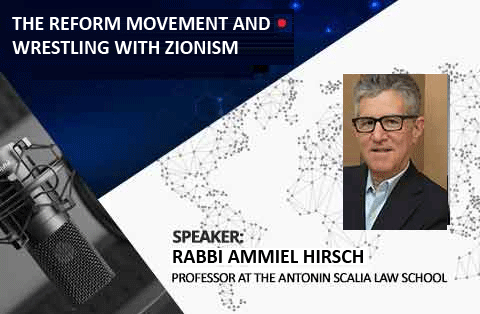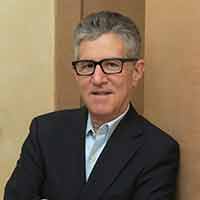Ammiel Hirsch is the senior rabbi of Stephen Wise Free Synagogue. Internationally recognized for his leadership in Jewish affairs, Rabbi Hirsch is frequently cited in the media. In 2018, The Jerusalem Post named him among “The 50 Most Influential Jews of the Year.” City & State praised him as “the borough’s most influential voice” for Manhattan’s more than 300,000 Jews and The New York Observer named him among “New York’s Most Influential Religious Leaders.” His sermons are regularly broadcast on JBS-TV and he is the host of the bi-weekly podcast “In These Times with Rabbi Ammi Hirsch.” An accomplished teacher and public speaker, Rabbi Hirsch is also the author of “The Lilac Tree” and the co-author of the acclaimed “One People Two Worlds: A Reform Rabbi and an Orthodox Rabbi Explore the Issues that Divide Them.”
Prior to his arrival at Stephen Wise, he served for 12 years as executive director of the Association of Reform Zionists of America (ARZA), the Israel arm of the North American Reform movement. Rabbi Hirsch has served on numerous boards of national and international bodies, including the Jewish Agency for Israel, the World Zionist Organization, the Conference of Presidents of Major American Jewish Organizations, and the Central Conference of American Rabbis. He is currently an officer of the New York Board of Rabbis, and a member of the Partnership of Faith, an interfaith body of New York religious leaders, and New York State Attorney General Letitia James’ Black-Jewish Clergy Roundtable. A trained lawyer, Rabbi Hirsch is also a veteran of the Israel Defense Forces, where he served as a tank commander.





